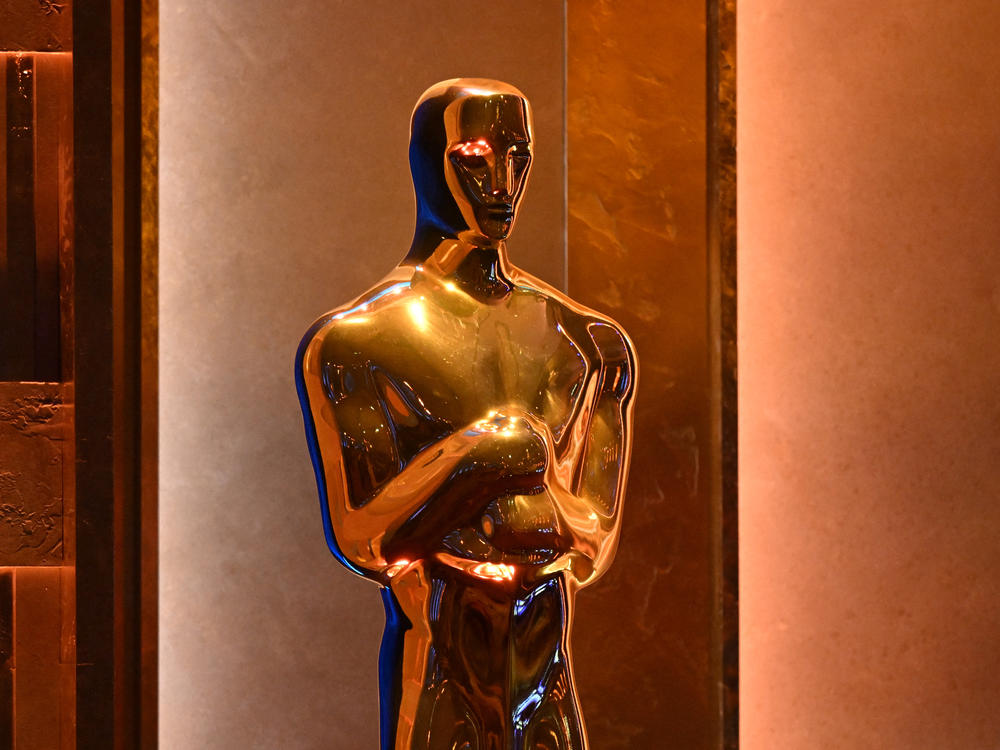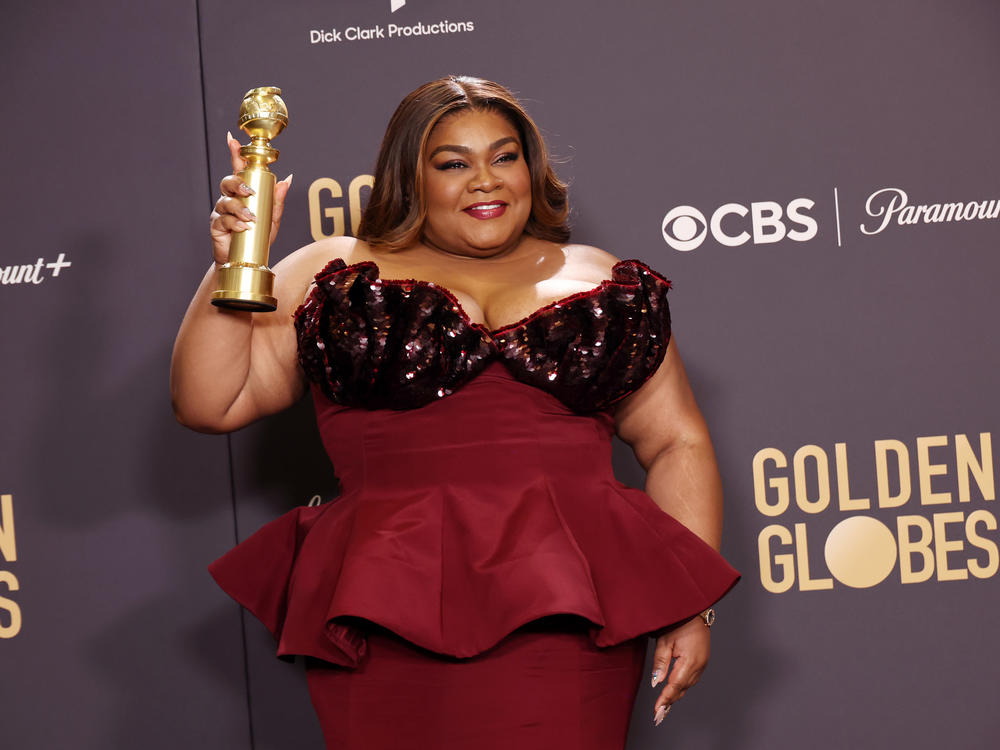Section Branding
Header Content
What to expect at the Oscars: The bomb, the bombshell, and the possible comeback
Primary Content
Barbenheimer's day is done. Oppenheimer's night is here.
At any rate, that is how awards season has been playing out in the lead-up to Sunday's 96th Annual Academy Awards (on ABC at 7:00 p.m. EDT).
Greta Gerwig's living-doll of a Barbie movie handily won the hot-pink vs. dark-brooding competition at the box office, raking in $1.4 billion as the year's biggest smash while also dominating the year's memes and becoming the most successful woman-directed film in history.
Now though — if the Golden Globes, Critics Choice, BAFTA and Hollywood's guild ceremonies are any indication — it will be Oppenheimer, Christopher Nolan's IMAX portrait of the father of the atom bomb, that'll be raking in the gold statuettes.
Timing, diversity and (hopefully) more viewers
Host Jimmy Kimmel will start the evening's festivities at the Dolby Theater an hour earlier than usual, one of several strategies the Academy of Motion Picture Arts and Sciences is employing to lure TV viewers back to something approaching pre-pandemic (30 million+) levels. (The last three years have averaged less than half that.)
There's reason for optimism: the biggest predictor of viewership has always been whether audiences have seen the nominees, and this year, with two of the most popular films of 2023 in the running for best picture, and with both of them and all their fellow nominees already available on streaming — the telecast is as well positioned as it has been in decades.
In a new wrinkle, this year's best picture nominees were required to fulfill at least two of four previously optional diversity-and-inclusion standards the Motion Picture Academy instituted after being stung by years of #OscarsSoWhite hashtags and a freshly minted #OscarsSoMale hashtag at its 2020 telecast.
The aim is to expand participation by historically under-represented groups on and off-screen. And while the standards aren't particularly difficult to meet – of the 321 films eligible for Oscars, 265 qualified under the new requirements for Best Picture consideration – there is demonstrable diversity among nominees this year.
This could also be due to the Academy's enlarged and broadened voting membership — almost 11,000 people (up from 6,261 in 2012) from 93 countries — with substantial increases in the percentage of women and persons of color over previous years.
Anecdotal evidence that this might be helping:
- Four of the year's best picture nominees (Killers of the Flower Moon, Anatomy of a Fall, Past Lives, and Zone of Interest) are at least partly not in English.
- Seven of the 20 acting nominees are performers of color, with the best actress category already precedent-setting for the presence of Lily Gladstone, the first Native American acting nominee in Oscars history.
- GLAAD issued a statement praising the nominations of Rustin's Colman Domingo and Nyad's Jodie Foster as the first time two out LGBTQ actors have been nominated for playing LGBTQ characters (and real-life historical icons).
Hints for your Oscar Pool ballot
And then, of course, there's the horse race. The Oscars come at the tail end of a wave of awards ceremonies, some from groups with memberships that overlap with the Academy's. And when a lot of those groups agree, as has happened this year, that can make the race feel less like a contest than a coronation.
At this point, it would be actively startling if Oppenheimer (which received 13 nominations) does not win the two big prizes — best picture and best director (Christopher Nolan) — likely along with best editing, best score, best cinematography, and possibly best supporting actor (Robert Downey Jr.). Da'Vine Joy Randolph has won every best supporting actress award on the circuit so far for her grieving cafeteria manager in the prep-school dramedy The Holdovers.
Still, a goodly number of other awards appear up for grabs, including:
- Best actress, where Flower Moon's reserved Lily Gladstone and Poor Things' boisterous Emma Stone appear equally favored.
- Best actor, where Oppenheimer's Cillian Murphy has been trading wins all awards season with The Holdovers' Paul Giamatti.
- Best animated feature, where Spider-Man: Across the Spider-Verse and Hayao Miyazaki's The Boy and the Heron are perhaps a brush stroke apart in popularity.
All of which is to say, there's still plenty of wriggle room on your Oscar pool ballot and reason to watch.


